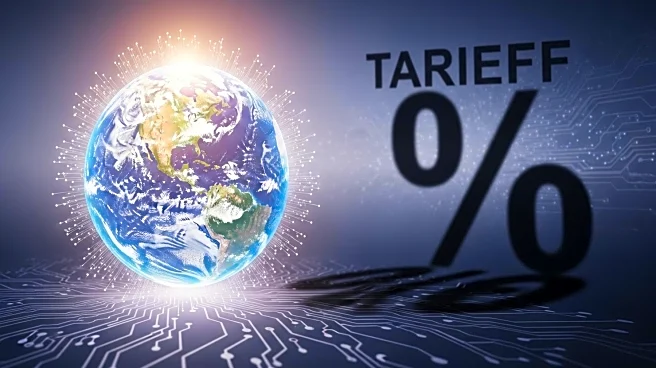What's Happening?
President Trump has announced a potential 'massive increase of Tariffs' on Chinese imports in response to China's new export controls on rare earths. These minerals are crucial for high-tech industries, including automobiles, defense, and semiconductors. China, which controls about 70% of the global supply, has imposed restrictions requiring foreign entities to obtain a license to export products containing more than 0.1% of rare earths sourced from China. The new rules are set to take effect on December 1. Trump's announcement, made via social media, also included a threat to cancel his upcoming meeting with Chinese President Xi Jinping.
Why It's Important?
The rare earths dispute highlights the strategic importance of these minerals in global technology and defense sectors. The U.S. relies heavily on imports from China for these materials, making the potential tariff increase a significant economic and geopolitical issue. The move could escalate tensions between the two countries, affecting trade relations and potentially leading to increased costs for U.S. industries dependent on rare earths. The stock market reacted negatively to Trump's announcement, reflecting investor concerns about the broader economic implications.
What's Next?
The situation may lead to further diplomatic negotiations between the U.S. and China to resolve the rare earths export control issue. If tariffs are imposed, U.S. industries may seek alternative sources for rare earths, potentially increasing costs and affecting production timelines. The upcoming meeting between Trump and Xi Jinping, if it proceeds, could be a critical moment for addressing these trade tensions.
Beyond the Headlines
The rare earths dispute underscores the vulnerability of global supply chains and the strategic leverage that resource-rich countries like China hold. It may prompt the U.S. to invest in domestic rare earths production and recycling technologies to reduce dependency on foreign sources.










